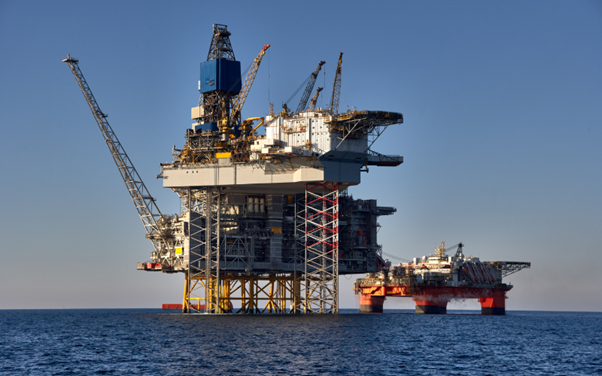Marine gas oil (MGO) is a cornerstone of the maritime industry, playing a pivotal role in ensuring the smooth operation of ships and vessels worldwide. This essential fuel type, known for its lower sulphur content compared to traditional marine fuels, has become increasingly significant as environmental regulations tighten and sustainability becomes a global priority. In this article, we will delve into the importance of marine gas oil, its impact on the maritime sector, and the vital role of oil and gas trading companies in Singapore in facilitating its supply.
Understanding Marine Gas Oil
Marine gas oil is a type of diesel fuel designed specifically for use in marine engines. Unlike heavier marine fuels, MGO is a distillate fuel, which means it is cleaner and more refined. This characteristic makes it particularly valuable in reducing harmful emissions, an aspect of growing importance in an industry under pressure to meet stringent environmental standards. MGO’s cleaner burning properties not only help in complying with regulations but also contribute to the overall efficiency and longevity of marine engines.
The versatility of marine gas oil further cements its role in the maritime sector. It can be used in a variety of engines, from auxiliary engines to main propulsion engines, providing a reliable and consistent energy source for different vessel types. This adaptability is crucial for the operational flexibility required in modern maritime logistics and transportation.
Environmental and Regulatory Implications
The maritime industry is one of the largest contributors to global emissions, making the switch to cleaner fuels like marine gas oil a critical step towards sustainability. International regulations, such as the International Maritime Organization’s (IMO) 2020 sulphur cap, mandate a significant reduction in the sulphur content of marine fuels. Marine gas oil, with its lower sulphur content, meets these regulations and helps ship operators avoid hefty fines and potential operational disruptions.
Moreover, the adoption of MGO supports broader environmental goals by reducing the emission of sulphur oxides (SOx), nitrogen oxides (NOx), and particulate matter. These pollutants are not only harmful to marine life but also pose significant health risks to coastal populations. By transitioning to marine gas oil, the maritime industry contributes to cleaner air and a healthier environment.
The Role of Oil and Gas Trading Companies in Singapore
Oil and gas trading companies in Singapore play an indispensable role in the maritime industry’s transition to marine gas oil. Singapore, being one of the world’s busiest ports and a major hub for oil trading, is strategically positioned to supply marine fuels to vessels plying international waters. These trading companies ensure a steady and reliable supply of high-quality marine gas oil, meeting the demands of a rapidly evolving market.
These companies are not just suppliers but also innovators, constantly adapting to new regulations and market trends. They provide value-added services such as fuel testing, quality assurance, and logistical support, ensuring that ship operators receive the best possible fuel for their needs. The expertise and infrastructure of oil and gas trading companies in Singapore are critical in maintaining the efficiency and reliability of the global maritime supply chain.
Economic Impact and Operational Efficiency
The economic implications of using marine gas oil are significant. While MGO may come at a higher cost compared to heavier marine fuels, the benefits it offers in terms of compliance, engine performance, and reduced maintenance costs can outweigh the initial expense. Vessels operating on marine gas oil experience fewer engine issues and lower overall operational disruptions, leading to better uptime and reliability.
Furthermore, the shift towards marine gas oil aligns with the global maritime industry’s economic trends. As stakeholders prioritise sustainability and environmental responsibility, vessels running on cleaner fuels like MGO are better positioned to attract business and partnerships. This trend underscores the importance of having a robust supply chain facilitated by oil and gas trading companies in Singapore, ensuring that the maritime industry remains competitive and forward-thinking.
The Future of Marine Gas Oil in Maritime Industries
The future of marine gas oil in the maritime industry looks promising as the world moves towards cleaner and more sustainable energy sources. Innovations in fuel technology and continued investment in cleaner fuels will likely enhance the role of MGO. Oil and gas trading companies in Singapore are expected to remain at the forefront of these developments, leveraging their strategic location and expertise to drive the industry forward.
As the maritime sector navigates the challenges of environmental compliance and operational efficiency, marine gas oil will continue to be a crucial component. The ongoing collaboration between ship operators, regulatory bodies, and oil and gas trading companies is essential in shaping a sustainable and prosperous future for maritime industries worldwide.
Conclusion
Marine gas oil is undeniably a vital element in the maritime industry, offering a cleaner, more efficient fuel option that aligns with global environmental regulations. The role of oil and gas trading companies in Singapore is instrumental in ensuring the steady supply and distribution of this essential fuel. As the industry continues to evolve, embracing marine gas oil is a strategic move that promises both economic and environmental benefits.
To learn more about how marine gas oil can benefit your maritime operations, contact Vegatron today, the trusted name among oil and gas trading companies in Singapore.














Comments